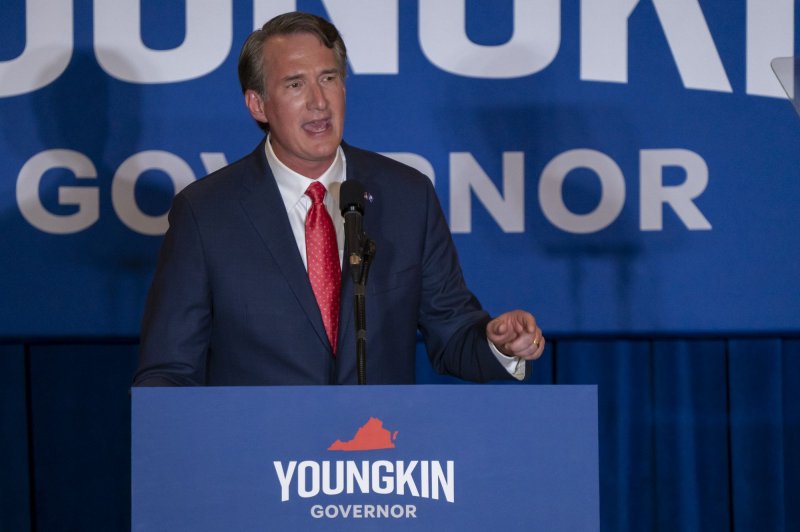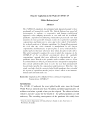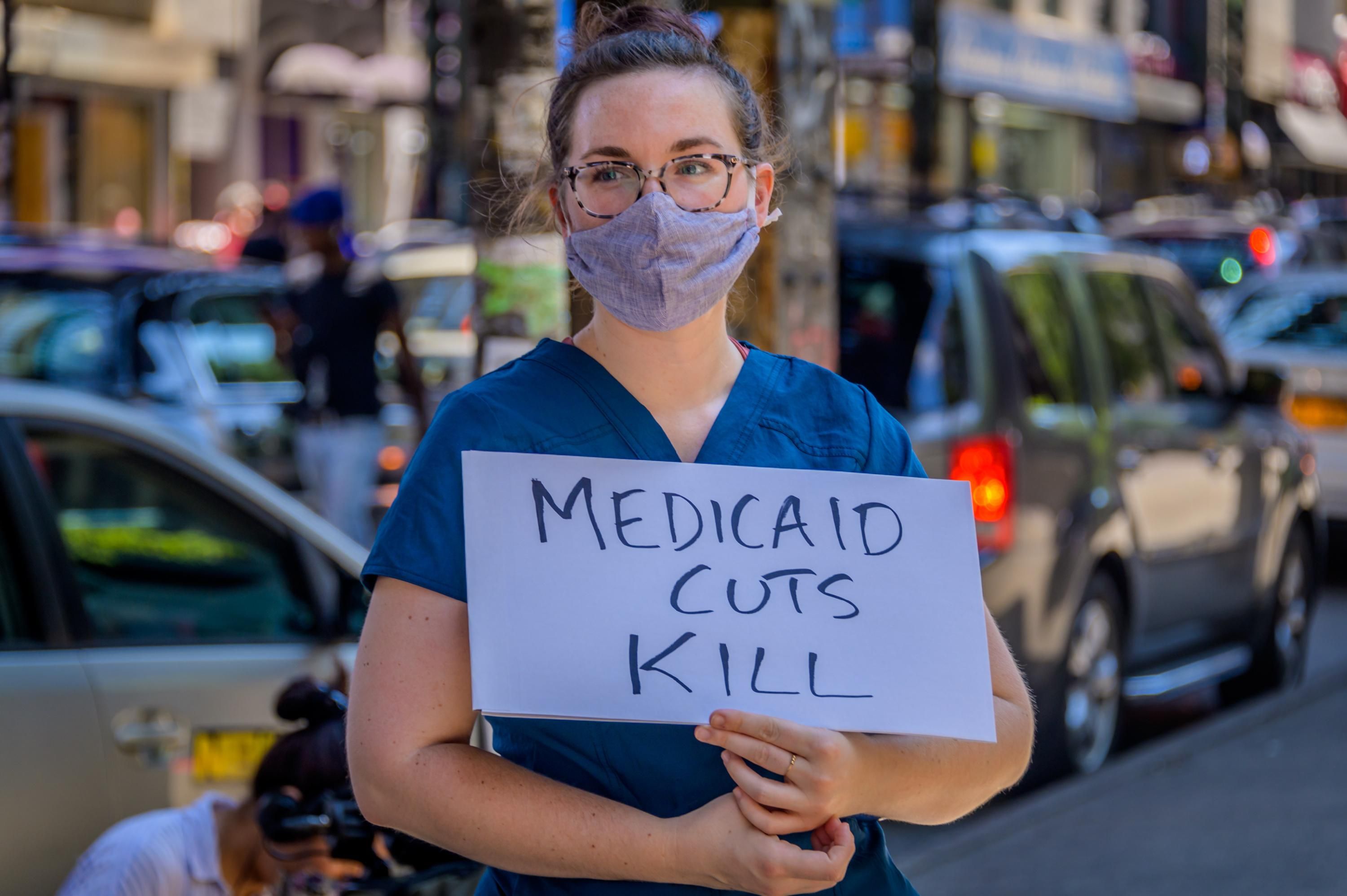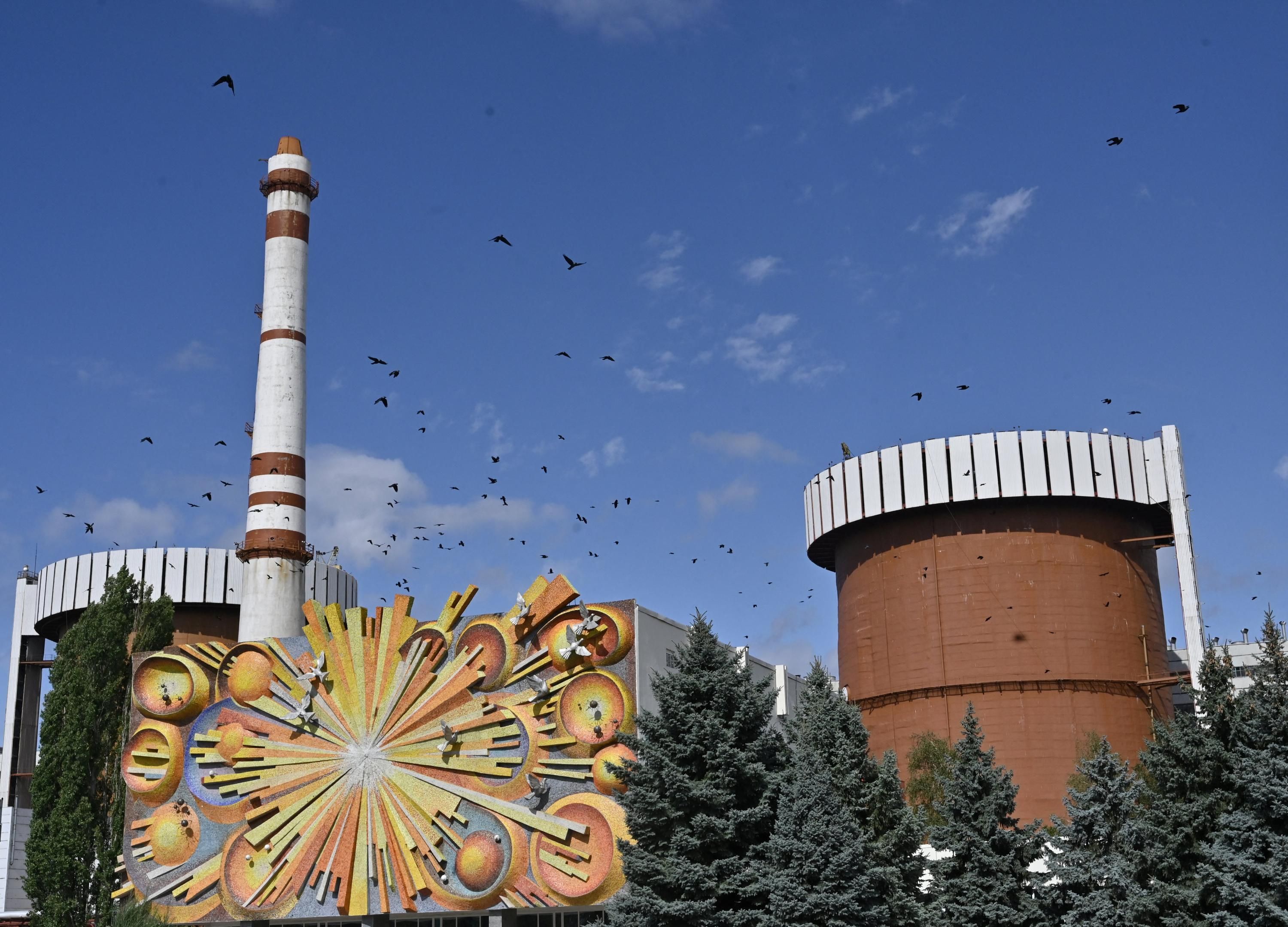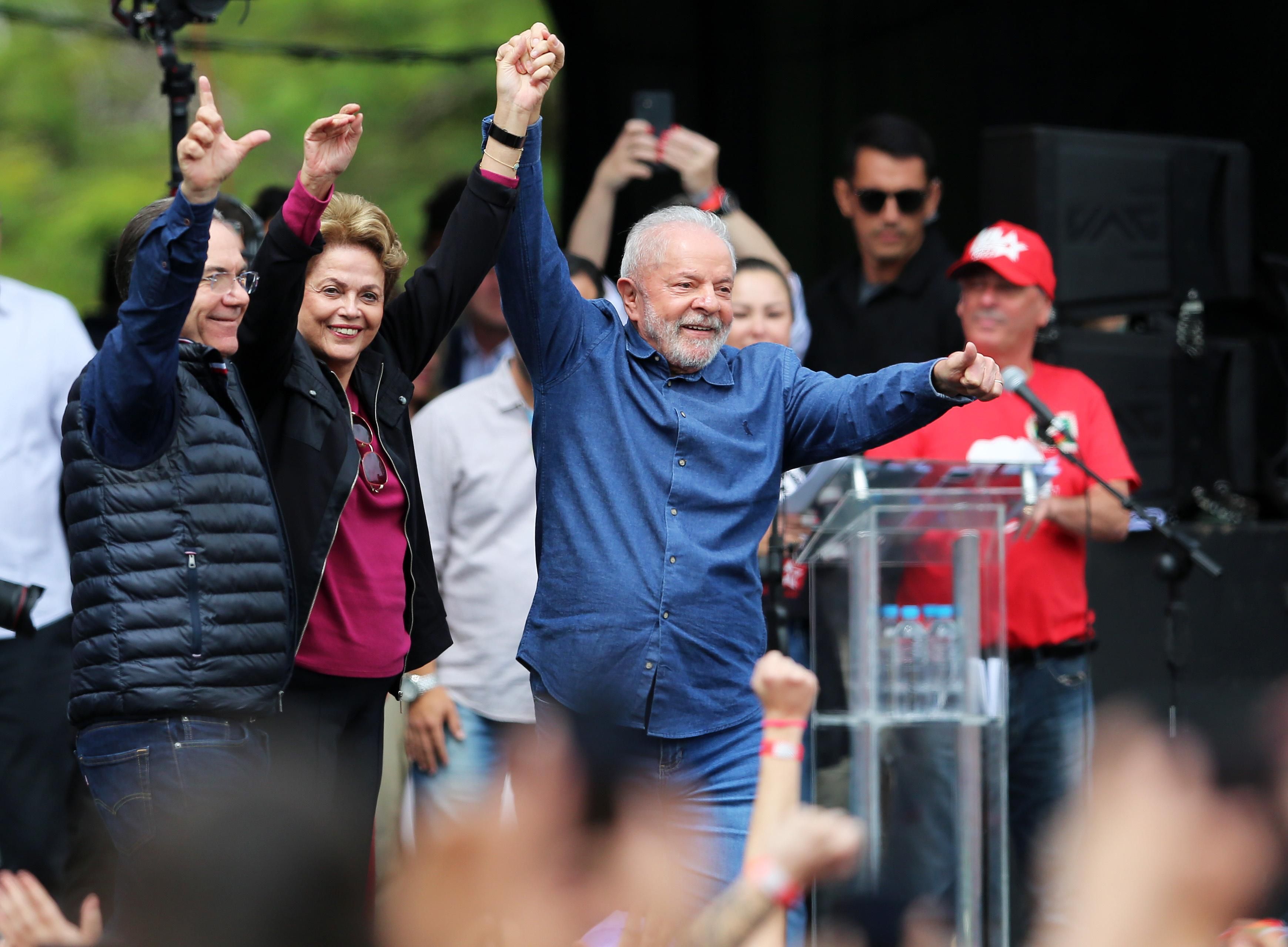UPDATED
Mexico’s earthquake coincidence drives anxiety for many
By FABIOLA SÁNCHEZ
By FABIOLA SÁNCHEZ
yesterday

1 of 8

1 of 8
A resident walks through a street cordoned off amid debris from the previous day's earthquake in Coalcoman, Michoacan state, Mexico, Tuesday, Sept. 20, 2022. The magnitude 7.6 earthquake shook Mexico’s central Pacific coast on Monday, killing at least one person. (AP Photo/Armando Solis)
MEXICO CITY (AP) — As the parents of children killed when a school collapsed during Mexico’s 2017 earthquake celebrated a Mass in their memory, the ground began to shake again.
“No, not again! My God, not again!” they shouted when a magnitude 7.6 earthquake rattled the capital Monday, killing two people in the Pacific coast state of Colima.
Three powerful earthquakes have struck Mexico on Sept. 19 — in 1985, 2017 and now 2022. The unlucky coincidence has driven anxiety high for many. The last two quakes also came very shortly after the annual earthquake drill conducted every Sept. 19 to commemorate the devastating 1985 temblor.
Mexico’s national Civil Defense Coordinator Laura Velázquez said Tuesday that the two deaths in Colima were due to parts of buildings collapsing. Ten people were injured -- nine in Colima and one in neighboring Michoacan.
More than 200 buildings were damaged, including dozens of schools and health centers, she said. Most of the damage was in those Pacific states, close to the Michoacan epicenter. Some 20 Mexico City buildings were damaged, but it was minor, she said.
On the morning of Sept. 19, 1985, an 8.0 magnitude earthquake devastated the center, south and west of the country, leaving some 9,500 dead.
“It’s really strange, but a lot of people already don’t like that day,” said Jorge Ornelas, a call center coordinator. He said a lot of his acquaintances begin to worry about an earthquake come September.
“If we keep thinking that every Sept. 19 it’s going to shake, it’s going to continue happening every year, because what you think is always what happens,” the 35-year-old Ornelas said.
Xyoli Pérez-Campos, a researcher in the seismology department at the National Autonomous University of Mexico’s Geophysical Institute, said there was no physical reason for the coincidence of major earthquakes on a single day. Monday’s earthquake was the result of the “interaction of the Cocos plate with the North America plate,” which also generated the 1985 earthquake.
Five plates -- the North America, the Pacific, the Rivera, the Caribbean and the Cocos -- all run under Mexican territory.
“The plates break when it’s their time to break,” Pérez-Campos said. “What are they going to know about the calendar?”
MEXICO CITY (AP) — As the parents of children killed when a school collapsed during Mexico’s 2017 earthquake celebrated a Mass in their memory, the ground began to shake again.
“No, not again! My God, not again!” they shouted when a magnitude 7.6 earthquake rattled the capital Monday, killing two people in the Pacific coast state of Colima.
Three powerful earthquakes have struck Mexico on Sept. 19 — in 1985, 2017 and now 2022. The unlucky coincidence has driven anxiety high for many. The last two quakes also came very shortly after the annual earthquake drill conducted every Sept. 19 to commemorate the devastating 1985 temblor.
Mexico’s national Civil Defense Coordinator Laura Velázquez said Tuesday that the two deaths in Colima were due to parts of buildings collapsing. Ten people were injured -- nine in Colima and one in neighboring Michoacan.
More than 200 buildings were damaged, including dozens of schools and health centers, she said. Most of the damage was in those Pacific states, close to the Michoacan epicenter. Some 20 Mexico City buildings were damaged, but it was minor, she said.
On the morning of Sept. 19, 1985, an 8.0 magnitude earthquake devastated the center, south and west of the country, leaving some 9,500 dead.
“It’s really strange, but a lot of people already don’t like that day,” said Jorge Ornelas, a call center coordinator. He said a lot of his acquaintances begin to worry about an earthquake come September.
“If we keep thinking that every Sept. 19 it’s going to shake, it’s going to continue happening every year, because what you think is always what happens,” the 35-year-old Ornelas said.
Xyoli Pérez-Campos, a researcher in the seismology department at the National Autonomous University of Mexico’s Geophysical Institute, said there was no physical reason for the coincidence of major earthquakes on a single day. Monday’s earthquake was the result of the “interaction of the Cocos plate with the North America plate,” which also generated the 1985 earthquake.
Five plates -- the North America, the Pacific, the Rivera, the Caribbean and the Cocos -- all run under Mexican territory.
“The plates break when it’s their time to break,” Pérez-Campos said. “What are they going to know about the calendar?”
At least one dead after magnitude 7.6 earthquake hits Mexico's pacific coast
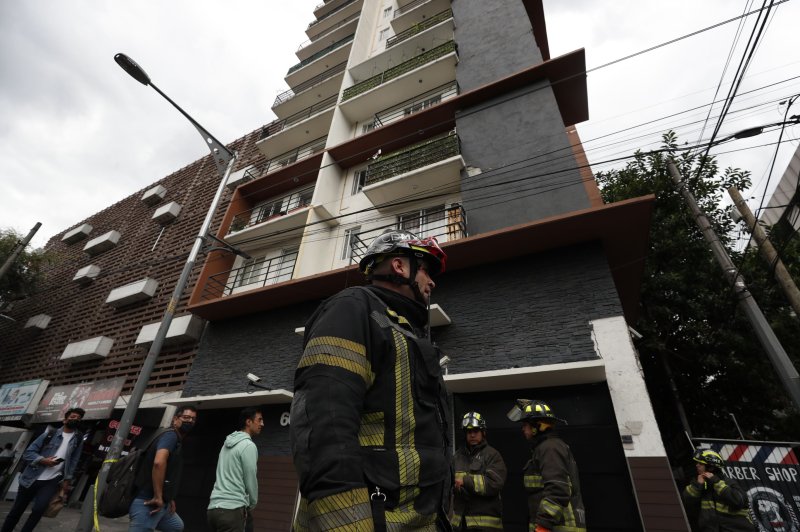
At least one person died and residents reported damage to buildings after a major earthquake struck Mexico on Monday. Photo by Jose Mendez/EPA-EFE
Sept. 19 (UPI) -- At least one person is dead after a strong earthquake shook Mexico's central Pacific coast Monday, as the nation observed the anniversaries of two previous quakes.
A magnitude 7.6 earthquake hit at 1:05 p.m. local time, according to the U.S. Geologic Survey. The quake was centered 23 miles southeast of Aquila.
Mexican President Andres Manuel Lopez Obrador said on Twitter that Admiral Jose Rafael Ojeda Duran, Secretary of the Navy, had informed him that a person died after a wall collapsed at a mall in the city of Manzanillo.
A mandatory evacuation order was issued in Mexico City and the U.S. Tsunami Warning System said there was risk of a tsunami near the coast of Michoacan.
Local residents said that buildings -- including a hospital -- were damaged near the epicenter in Coalcoman, Michoacan, but no injuries were immediately reported, according to The New York Times.
Mexico City Mayor Claudia Sheinbaum tweeted that there were no reports of damage in the capital but said some parts of the city lost power following the quake.
Monday's earthquake occurred on the five year anniversary of a 7.1 earthquake that killed more than 200 people in Central Mexico and just an hour after an earthquake drill in Mexico City was held at 12:19 p.m. on Monday to honor the anniversary of the 2017 disaster.
That quake took place 32 years to the day after a 8.1 massive quake devastated the country, claiming thousands of lives.

At least one person died and residents reported damage to buildings after a major earthquake struck Mexico on Monday. Photo by Jose Mendez/EPA-EFE
Sept. 19 (UPI) -- At least one person is dead after a strong earthquake shook Mexico's central Pacific coast Monday, as the nation observed the anniversaries of two previous quakes.
A magnitude 7.6 earthquake hit at 1:05 p.m. local time, according to the U.S. Geologic Survey. The quake was centered 23 miles southeast of Aquila.
Mexican President Andres Manuel Lopez Obrador said on Twitter that Admiral Jose Rafael Ojeda Duran, Secretary of the Navy, had informed him that a person died after a wall collapsed at a mall in the city of Manzanillo.
A mandatory evacuation order was issued in Mexico City and the U.S. Tsunami Warning System said there was risk of a tsunami near the coast of Michoacan.
Local residents said that buildings -- including a hospital -- were damaged near the epicenter in Coalcoman, Michoacan, but no injuries were immediately reported, according to The New York Times.
Mexico City Mayor Claudia Sheinbaum tweeted that there were no reports of damage in the capital but said some parts of the city lost power following the quake.
Monday's earthquake occurred on the five year anniversary of a 7.1 earthquake that killed more than 200 people in Central Mexico and just an hour after an earthquake drill in Mexico City was held at 12:19 p.m. on Monday to honor the anniversary of the 2017 disaster.
That quake took place 32 years to the day after a 8.1 massive quake devastated the country, claiming thousands of lives.
Tsunami warning issued after 7.6 magnitude earthquake rocks central Mexico
Graig Graziosi - Yesterday
A strong earthquake has hit central Mexico. The extent of the damage caused by the quake is still being determined. The earthquake is reported to be a 7.6 magnitude quake according to the US Geological Survey. The USGS initially reported the quake was a 7.5.

Screen Shot 2022-09-19 at 2.36.21 PM.png© US Geological Surve
At least one person has been confirmed dead, according to Mexican President Andrés Manuel López Obrador. That individual was killed in the coastal city of Manzanilo, approximately 130km south of the epicentre.
According to the president, the individual died when a shopping centre collapsed in the port city.
According to the USGS, the earthquake’s centre was in the Pacific Ocean near La Placita de Morelos, about 300 miles northwest of Acapulco.
The US Tsunami Warning System has issued an alert warning that a tsunami is possible along the coast of Michoacan, Mexico.
A Twitter user in Puerto Vallarta captured the effects of the earthquake on video. In the clip, the room rumbles and a ceiling fan swings wildly as the earthquake rocks the area. Puerto Vallarta is approximately 400km north of the earthquake’s epicentre.
According to the Pacific Tsunami Warning Centre, possible tsunami waves could occur within 300km of the earthquake’s epicentre. It noted that waves between 1 and 3 meters above the tide level are possible along the Mexican coast. On Monday afternoon the agency said it had observed tsunami waves.
Waves of up to 0.3 meters above the tide level are possible for a number of nations, including Hawaii, American Samoa, Guam, Australia, Japan, Chile, Columbia, Costa Rica, El Salvador, Guatemala and Honduras.
The Pacific Tsunami Warning Centre said there was no tsunami threat to Hawaii following the earthquake.
The effects of the earthquake were felt hundreds of miles away. Video from Mexico City showed street signs swaying during the quake and locals crowded in the streets as a warning siren blared in the background.
In Manzanillo, videos showed that the wall of a gym collapsed, leaving it and the roof in a pile of rubble. The sky could be seen through a gaping hole in the building’s exterior.
The quake occurred on the same day Mexico holds its national earthquake drill, which also commemorates the massive quake in 1985 that left thousands dead in Mexico City.
Another earthquake hit Mexico on the same day in Puebla in 2017, leaving 370 dead.
Monday’s quake occurred only a half an hour after the annual drill concluded.
On Sunday, a 6.6 magniture earthquake hit Taiwan, killing one and injuring 146.
From news to politics, travel to sport, culture to climate – The Independent has a host of free newsletters to suit your interests. To find the stories you want to read, and more, in your inbox, click here.
Graig Graziosi - Yesterday
A strong earthquake has hit central Mexico. The extent of the damage caused by the quake is still being determined. The earthquake is reported to be a 7.6 magnitude quake according to the US Geological Survey. The USGS initially reported the quake was a 7.5.

Screen Shot 2022-09-19 at 2.36.21 PM.png© US Geological Surve
At least one person has been confirmed dead, according to Mexican President Andrés Manuel López Obrador. That individual was killed in the coastal city of Manzanilo, approximately 130km south of the epicentre.
According to the president, the individual died when a shopping centre collapsed in the port city.
According to the USGS, the earthquake’s centre was in the Pacific Ocean near La Placita de Morelos, about 300 miles northwest of Acapulco.
The US Tsunami Warning System has issued an alert warning that a tsunami is possible along the coast of Michoacan, Mexico.
A Twitter user in Puerto Vallarta captured the effects of the earthquake on video. In the clip, the room rumbles and a ceiling fan swings wildly as the earthquake rocks the area. Puerto Vallarta is approximately 400km north of the earthquake’s epicentre.
According to the Pacific Tsunami Warning Centre, possible tsunami waves could occur within 300km of the earthquake’s epicentre. It noted that waves between 1 and 3 meters above the tide level are possible along the Mexican coast. On Monday afternoon the agency said it had observed tsunami waves.
Waves of up to 0.3 meters above the tide level are possible for a number of nations, including Hawaii, American Samoa, Guam, Australia, Japan, Chile, Columbia, Costa Rica, El Salvador, Guatemala and Honduras.
The Pacific Tsunami Warning Centre said there was no tsunami threat to Hawaii following the earthquake.
In Manzanillo, videos showed that the wall of a gym collapsed, leaving it and the roof in a pile of rubble. The sky could be seen through a gaping hole in the building’s exterior.
The quake occurred on the same day Mexico holds its national earthquake drill, which also commemorates the massive quake in 1985 that left thousands dead in Mexico City.
Another earthquake hit Mexico on the same day in Puebla in 2017, leaving 370 dead.
Monday’s quake occurred only a half an hour after the annual drill concluded.
On Sunday, a 6.6 magniture earthquake hit Taiwan, killing one and injuring 146.
From news to politics, travel to sport, culture to climate – The Independent has a host of free newsletters to suit your interests. To find the stories you want to read, and more, in your inbox, click here.
NEWS WIRES -
A magnitude 7.6 earthquake shook Mexico's central Pacific coast on Monday, killing at least one person and setting off a seismic alarm in the rattled capital on the anniversary of two earlier devastating quakes.

Strong earthquake shakes Mexico on 'cursed' anniversary of temblors
© Fernando Carranza, Reuters
There were at least some early reports of damage to buildings from the quake, which hit at 1:05 pm local time, according to the US Geologic Survey, which had initially put the magnitude at 7.5.
It said the quake was centered 37 kilometres (23 miles) southeast of Aquila near the boundary of Colima and Michoacan states and at a depth of 15.1 kilometres (9.4 miles).
President Andrés Manuel López Obrador said via Twitter that the secretary of the navy told him one person was killed in the port city of Manzanillo, Colima when a wall at a mall collapsed.
In Coalcoman, Michoacan, near the quake's epicentre, buildings were damaged, but there were not immediate reports of injuries.
“It started slowly and then was really strong and continued and continued until it started to relent,” said 16-year-old Carla Cárdenas, a resident of Coalcoman. Cárdenas ran out of her family’s hotel and waited with neighbours.
She said the hotel and some homes along the street displayed cracks in walls and segments of facades and roofs had broken off.
“In the hotel, the roof of the parking area boomed and fell to the ground, and there are cracks in the walls on the second floor,” Cárdenas said.
She said the town’s hospital was seriously damaged, but she had so far not heard of anyone injured.
There were at least some early reports of damage to buildings from the quake, which hit at 1:05 pm local time, according to the US Geologic Survey, which had initially put the magnitude at 7.5.
It said the quake was centered 37 kilometres (23 miles) southeast of Aquila near the boundary of Colima and Michoacan states and at a depth of 15.1 kilometres (9.4 miles).
President Andrés Manuel López Obrador said via Twitter that the secretary of the navy told him one person was killed in the port city of Manzanillo, Colima when a wall at a mall collapsed.
In Coalcoman, Michoacan, near the quake's epicentre, buildings were damaged, but there were not immediate reports of injuries.
“It started slowly and then was really strong and continued and continued until it started to relent,” said 16-year-old Carla Cárdenas, a resident of Coalcoman. Cárdenas ran out of her family’s hotel and waited with neighbours.
She said the hotel and some homes along the street displayed cracks in walls and segments of facades and roofs had broken off.
“In the hotel, the roof of the parking area boomed and fell to the ground, and there are cracks in the walls on the second floor,” Cárdenas said.
She said the town’s hospital was seriously damaged, but she had so far not heard of anyone injured.
Related video: Major quake strikes Mexico on 'cursed' anniversaryDuration 2:19

Mexico's National Civil Defense agency said that based on historic data of tsunamis in Mexico, variations of as much as 32 inches (82 cm) were possible in coastal water levels near the epicentre.
The US Tsunami Warning Center said that hazardous tsunami waves were possible for coasts within 186 miles (300 kilometres) of the epicenter.
Irlanda Villa, of coastal Coahuayana, Michoacan near the border with Colima, said some walls had fallen, but the big fear was that a tsunami would follow. “We were afraid the sea would go out, but in the end everything is fine.”
Mexico City Mayor Claudia Sheinbaum tweeted that there were no reports of damage in the capital
Alarms for the new quake came less than an hour after a quake alarms warbled in a nationwide earthquake simulation marking major quakes that struck on the same date in 1985 and 2017. The magnitude 8.0 quake centered near the coast of Guerrero state in 1985 killed at least 9,500 people. More than 360 people died in the magnitude 7.1 quake that struck in 2017.
“This is a coincidence,” that this is the third Sept. 19 earthquake, said US Geological Survey seismologist Paul Earle. “There’s no physical reason or statistical bias toward earthquakes in any given month in Mexico.”
Nor is there a season or month for big earthquakes anywhere on the globe, Earle said. But there is a predictable thing: People seek and sometimes find coincidences that look like patterns.
“We knew we’d get this question as soon as it happened,” Earle said. “Sometimes there are just coincidences.”
The quake was not related to or caused by the drill an hour or so earlier, nor was it connected to a damaging temblor in Taiwan the day before, Earle said.
Humberto Garza stood outside a restaurant in Mexico City's Roma neighborhood holding his 3-year son. Like many milling about outside after the earthquake, Garza said the earthquake alarm sounded so soon after the annual simulation that he was not sure it was real.
“I heard the alarm, but it sounded really far away,” he said.
Outside the city's environmental ombudsman's office, dozens of employees waited. Some appeared visibly shaken.
Power was out in parts of the city, including stoplights, snarling the capital's already notorious traffic.
(AP)





